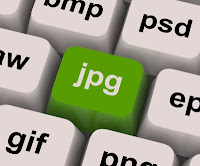Senior Downsizing Tips To Make Downsizing For Seniors Less Stressful and Easier:
1. Check The Layout of The New Place
To help seniors downsize, it will be good to find out the layout for the new place in advance so you know how much space the senior will have. This will help you and your senior loved one decide on what will fit and things you can bring.
2. Sort Wisely
When a senior decides to downsize, help the senior avoid clutter. Be sure to help your senior loved one sort out his or her belongings. Separate the things that the senior uses and things that your senior loved one barely uses or does not need at all.
3. One Room at A Time
When packing, start with rooms that the senior uses the least, as it will have less emotional attachments like attic, garage, bathroom, etc.
4. Keep A List
Downsizing can be very overwhelming as there are tons of things to do. In order to stay organize it is important to keep a list so you do not forget anything.
5. Determine the things to:
- Keep
- Give to family and friends
- Sell/Donate or
- Throw
6. Organize A Family Get Together
When a senior decides to downsize, it will be nice to organize a family get-together so the senior can distribute his or her things among family members. Remind your senior loved one to share his or her memories before giving out the item so your friend or family member would know and understand its importance. This will make family and friends appreciate the senior's generosity even more.
7. Take pictures
It's a good idea to take pictures of important things the senior will leave behind. This might make the "letting go" process much easier for seniors.
8. Where is The New Place?
If you will be moving to an assisted living facility, cooking utensils and dinner plates will no longer be needed. Donating it to social services or other charitable organizations will be a good idea.
9. Is A Senior Mover Necessary?
If you're helping a senior loved one downsize, you will be able to help decide whether or not a senior mover is needed. Seniors who downsize usually hire senior movers if they want to bring their furniture and other heavy things to te new place. Senior moving companies specialize in senior moving needs. They will help make the downsizing and the transition easier as most of these senior moving companies help in organizing and sorting the possessions of the senior. Check the Internet or Yellow Pages for listings of Senior Movers.
10. Relax.
Everything is done! You can now relax with your senior love one. Assure your elderly loved one that he or she made the right choice to downsize.
About the Author: Catharine D. Allado- Writes articles for www.seniorcarehomes.com - A trusted and comprehensive online directory of Senior Care Homes such as Assisted Living, Nursing Homes and other types of Senior Housing in California, Florida, New York, Arizona and the rest of the United States. SeniorCareHomes.com also provides FREE Placement Services, helping seniors and families find the best Senior Care Homes in the nation!
Rachel Seavey, Professional Organizer
I am located in Pleasanton Ca, and serve the San Francisco Bay Area.
I specialize in Hoarding Disorder, Chronic Disorganization and helping
the overwhelmed with clutter. I love what I do, and I provide realistic
expectations and timelines. Don't suffer in chaos any more. Every
breath is a new beginning! Please visit my site at
www.collectorcare.com
Tweet me on
Twitter : Like my
Facebook page : Find me on
Pinterest










